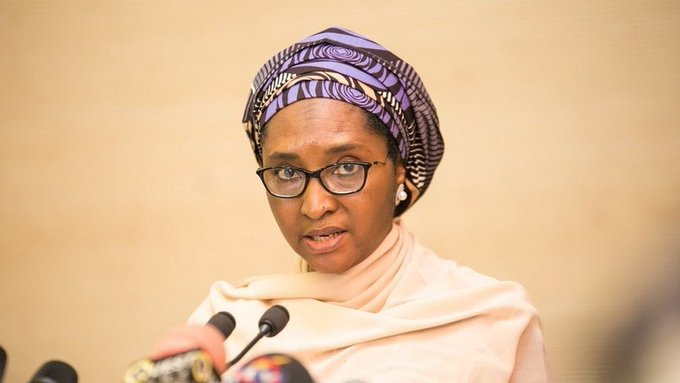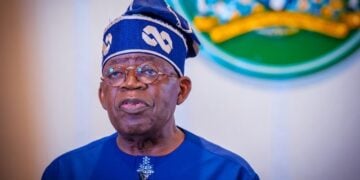Minister of finance, budget and national planning, Zainab Ahmed, has said the federal government has concluded every plan for the removal of the controversial subsidy on premium motor spirit (petrol) and would not revisit the matter.
Against earlier reports, the minister said the current administration is not suspending fuel subsidy removal but simply expanding the existing subsidy removal committee to include the transition committee members of President-elect Bola Ahmed Tinubu and the state governors.
“As far as the minister is concerned, the issue of subsidy removal is done and dusted. What she told the president is that ‘we have an incoming administration; do you want to take that decision without them?’” the minister’s special adviser on media and communications, Yunusa Tanko Abdullahi, said in an exclusive chart with our correspondent.
“There is no provision for subsidy payment in the 2023 Appropriation Act beyond June. Subsidy payment gulped over N1.4 trillion in 2022. So, that committee that was looking at the subsidy removal has now been expanded to include the transition committee team so that they can look at it together with the state governors,” Abdullahi said, adding that the government is not contemplating a suspension of the subsidy regime.
“If you say it is suspended, that will not be correct,” he stated.
The finance minister also disclosed that the National Economic Council (NEC) had agreed that the timing for the removal of subsidy should not be now but that all of the preparatory works should continue in consultation with the states and other key stakeholders, including representatives of the incoming administration.
Zainab Ahmed disclosed this to State House correspondents yesterday after a meeting of the National Economic Council (NEC) presided over by Vice President Yemi Osinbajo at the Presidential Villa, Abuja.
According to her, the council agreed that subsidy must be removed earlier rather than later, and alternatives need to be planned and put in place to mitigate the impact on ordinary citizens.
The minister further explained that an expanded committee was formed to determine the exact time and measures to be taken to provide support to the poor and vulnerable, and ensure sufficient supply of petroleum products.
She said the committee will engage with representatives from the incoming administration and key stakeholders.
According to her, the 2023 has provision for the subsidy only up to June 2023, and the Petroleum Industry Act requires that all petroleum products must be deregulated 18 months after the effective date of the subsidy removal, which is also up to June 2023.
According to her, the removal of subsidy will not be done before the transition is completed, but if the committee’s determination is that the removal can be done by June, then the plan will be designed to exit as a tool.
READ ALSO: Deadline For Fuel Subsidy Removal May Be Extended – NEC
“Council agreed that the first subsidy must be removed earlier rather than later because it is not sustainable. We cannot afford it anymore. We have to do it in such a way that the impact of the subsidy is as much as possible mitigated on the lives of ordinary Nigerians.
“So, this will require looking at alternatives to the post-subsidy that needs to be planned for and subsequently put in place but also what needs to be done to support the people that would be most affected as a result of the removal.
“So, we will be working together with representatives of the state; we will have a plan that we will start working on putting the building blocks towards the eventual removal of the fuel subsidy,” she said.
Hasty removal of subsidy will bring more hardship to Nigerians – Marketers, Analysts
Reacting to the announcement, the national presidents of the Independent Petroleum Marketers Association of Nigeria (IPMAN), Elder Chinedu Okoronkwo and Outlets Owners Association of Nigeria, PETROAN, Billy Gillis-Harry, agreed that any hasty removal of the subsidy will bring more hardship to Nigerians.
According to national president of PETROAN, Gillis-Harry, stakeholders have called for all engaging meetings to exchange ideas, make positive projections on investment opportunities, and share data on gaps before actions are taken.
Moreover, he said there is no minister of state for petroleum resources to further hold conversations with industry operators at this critical stage as President Muhammadu Buhari who holds the substantive ministerial portfolio is busy presently.
“I think this is quite encouraging because we as stakeholders have made recommendations as to how we can create investment opportunities in the sector and ensure implementation of the Petroleum Industry Act.
“We should be able to create a clement environment for businesses and also protect consumers’ interest in all we are doing. I think this decision is based on various submissions made recently and we need to provide information that will guide in-coming administration to adopt an articulated phased action and we should do this with all stakeholders, including the labour unions,” he said.
On his part, Chinedu Okoronkwo referred our correspondent to IPMAN’s position seeking investment in the Compressed Natural Gas space to provide an alternative to petrol in the event of subsidy withdrawal.
LEADERSHIP reports that IPMAN had written to the federal government seeking access to the N250 billion intervention fund for the National Gas Expansion Programme.
IPMAN, in a letter dated April 3, 2023, requested that the government should urge the Central Bank of Nigeria (CBN) to release the N250 billion as loans to vehicle owners.
The oil marketers said the N250 billion can be used by car, tricycle and truck owners to convert to gas due to the projected hike in Premium Motor Spirit (PMS) after the proposed subsidy removal.
Okoronkwo noted that the proposed removal of subsidy had been projected to raise the cost of petrol significantly above the current pump price.
According to him, aside from the N250 billion intervention fund to help cushion the impact of removing the subsidy, the IPMAN has entered into partnership with Gas Analytics & Solutions Ltd to locate natural gas dispensers at over 30,000 filling stations in Nigeria.
He said, “Our partner, Gas Analytics & Solutions Ltd, has an agreement with the Independent Petroleum Marketers Association of Nigeria (IPMAN) to co-locate natural gas dispensers on our network of over 30,000 filling stations in Nigeria.
“This collaboration with IPMAN presents the most economic and expedient platform to deploy the necessary infrastructure to support a fast national roll-out of CNG (Compressed Natural Gas) for vehicles.
“What is left is the support of the Central Bank of Nigeria to provide access to the Gas Expansion Fund for vehicles, Keke, and truck owners to access loans to finance the acquisition of natural gas conversion kits.” Okoronkwo said.
The conversion to gas will increase demands that will enable oil marketers to set up more CNG across filling stations.
He explained that: “Without a large pool of CNG customers, IPMAN will not be able to raise the funds required to set up CNG filling stations.
“We believe that with the support of the Ministry of Finance, IPMAN’s partnership with Gas Analytics will provide a platform that can, in a matter of a few months, cushion the impact of petrol subsidy removal and significantly reduce the need for foreign exchange to import petrol.”
On his part, the chief executive officer of the Centre for the Promotion of Private Enterprise (CPPE), Dr. Muda Yusuf, said that all matters relating to petrol subsidy removal should be left for the incoming administration to handle.
Speaking with LEADERSHIP, Yusuf said, “This should be the default position since the current government has announced a budgetary provision for fuel subsidy up until June 2023.
“This is also the position of the Petroleum Industry Act, as amended. Rather than stir another round of controversy and confusion, the matter ought to be left for the new administration. The NEC announcement was really unnecessary.
“My expectation is that the new administration should have its strategy of managing the policy transition. This should not be preempted by the current administration.
“The National Economic Council should avoid making policy pronouncement that may create problems for the new administration. I also expect that some level of informal consultation should have commenced between the transition team of the incoming administration and key stakeholders on the matter.”
The APC, he recalled, had categorically stated that it would remove petrol subsidy on assumption of office, but it had not unveiled the strategy of doing so.
On its part, the Nigeria Employers’ Consultative Association (NECA) urged the government to complete the Turn Around Maintenance of the Port Harcourt and other refineries ahead of the subsidy removal.
According to NECA, while the subsidy removal is highly desirable and the way to go in order to save the country from the continuous funding of inefficiency and consumption, the social economic impact on Nigerians cannot also be overlooked.
Jigawa NLC Gives Conditions For Subsidy Removal
JIgawa State branch of the Nigerian Labour Congress (NLC) has promised to support the federal government policy on fuel subsidy removal if such action will improve the social and economic life of workers in the state and county.
The secretary of the state branch of the union, Comrade Jide Tanko, revealed this in an interview with newsmen in Dutse, the state capital.
He explained that the stance of the Jigawa NLC on fuel subsidy removal is not different from its national headquarters as the condition given is very clear.
“The NLC’s condition for supporting the subsidy removal included that the federal government shall take steps in fixing the country’s moribund petroleum refineries at least to take care of our domestic needs, and also review the salary structure of the workers, among others.
“We in Jigawa are ever ready to negotiate with the state government on the policy, but we will resist any attempt or plan to introduce any unfriendly policy that may throw our compatriots/workers into untold hardship,” Tanko declared
Commenting on the 40 percent salary increase proposed and implemented by the federal government Comrade Tanko said the union was not yet engaged in any discussion with the Jigawa State Government on that subject matter.
The secretary said he was optimistic that when time came for such negotiation, the Jigawa State government would behave in a mature way as it has been doing on the issue of workers salary and entitlements.





